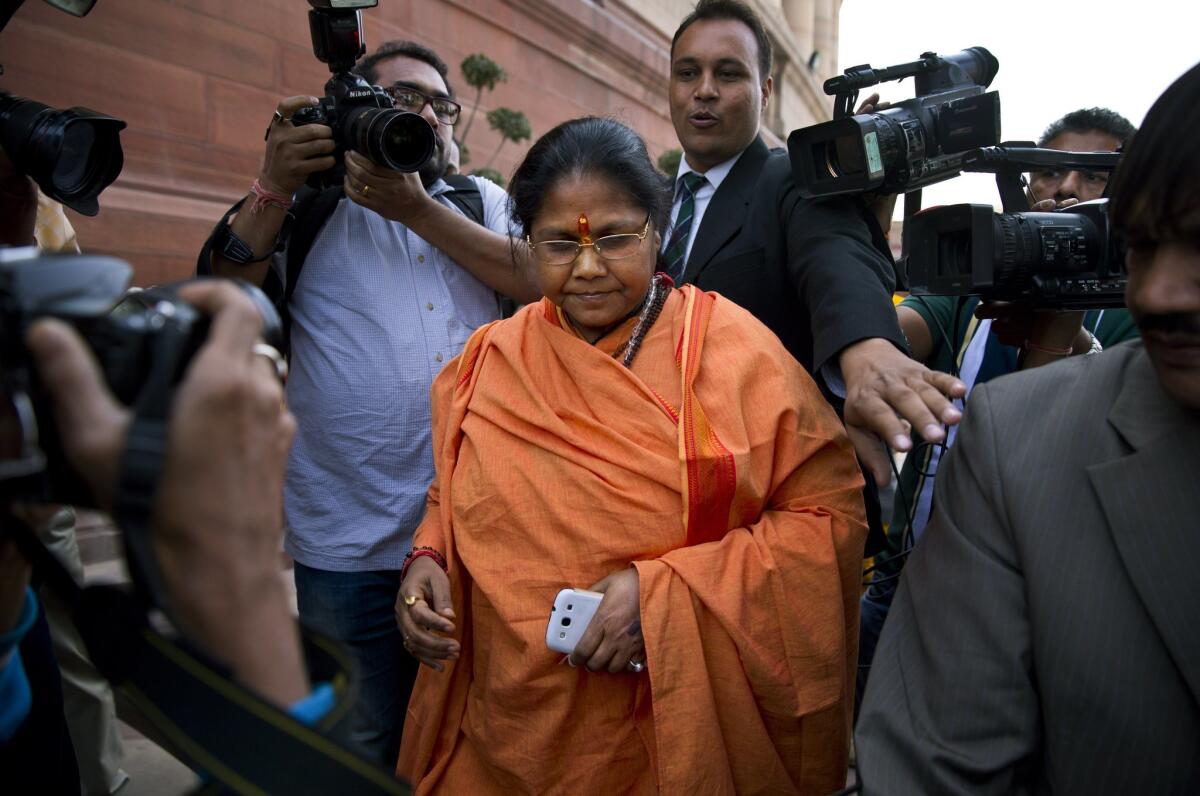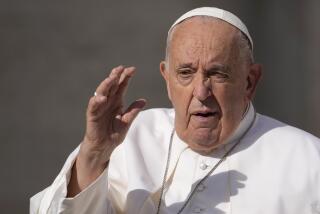India’s Narendra Modi apologizes for official’s remarks on non-Hindus

- Share via
Reporting from Mumbai, India — Indian Prime Minister Narendra Modi on Friday rebuffed calls to fire a member of his Cabinet over her characterization of non-Hindus as “illegitimate children,” which touched off a storm of protest among opposition parties.
Modi apologized to the lower house of parliament for the official’s remarks, but said “we should allow the matter to rest, and we should continue with our work in the national interest.”
Sadhvi Niranjan Jyoti, a junior minister in charge of food processing industries, told a rally in the capital, New Delhi, over the weekend that voters in upcoming state elections must choose between “those born of Ram,” a Hindu deity, and “those who are illegitimately born.”
The comments spurred outrage among opposition parties, who called for Jyoti’s removal from the council of ministers. Critics say the remarks reflect an antipathy toward Muslims among members of Modi’s ruling Bharatiya Janata Party, which has close ties to conservative Hindu groups.
Muslims make up roughly 14% of India’s 1.3 billion people and are the country’s largest minority. But the Bharatiya Janata Party’s parliamentary majority includes no Muslim lawmakers.
Modi’s apology did not pacify members of opposition parties, who staged a symbolic walkout of the parliamentary session, wearing black cloths over their mouths.
A day earlier, Modi had told the upper house of parliament that he “strongly disapproved” of the comments. But he has also sought to defend Jyoti by saying that “she comes from a village,” a reference to her humble background, which includes time spent in conservative Hindu ashrams.
She won a state assembly seat in 2012 from the northern state of Uttar Pradesh and was elected to parliament in May.
Indian news reports have said she has made similar comments about non-Hindus before, including at an election rally in March in the Uttar Pradesh capital of Lucknow at which Modi also spoke.
Modi, who won a sweeping election victory in May, is sensitive to accusations of religious bias because he was accused of not intervening to stop deadly communal riots in 2002 in his home state of Gujarat, where he was the chief executive. As prime minister, he has sought to portray himself as a pro-development, tech-savvy leader in a country suffering from economic stagnation.
President Obama, who plans to visit India in January as Modi’s guest of honor at the annual Republic Day festivities, last week praised Modi for shaking up India’s “bureaucratic inertia.”
Parth M.N. is a special correspondent. Times staff writer Shashank Bengali in Lumbini, Nepal, contributed to this report.
More to Read
Sign up for Essential California
The most important California stories and recommendations in your inbox every morning.
You may occasionally receive promotional content from the Los Angeles Times.










